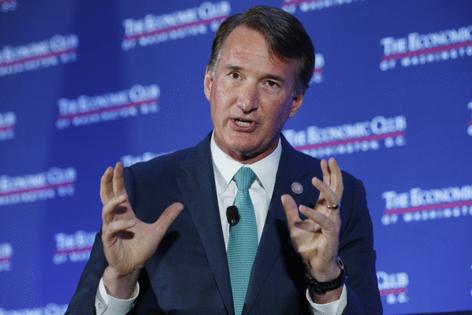Virginia's withdrawal from Regional Greenhouse Gas Initiative was 'unlawful,' judge rules
Published in News & Features
NORFOLK, Va. — A Circuit Court judge in the western part of the state has ruled that Gov. Glenn Youngkin’s decision to withdraw from the Regional Greenhouse Gas Initiative was “unlawful.”
The General Assembly passed a resolution to join the initiative in 2020.
The initiative is a multistate coalition that intends to reduce the use of fossil fuels as an energy source and to encourage a shift to renewable energy by requiring energy producers to buy allowances for each metric ton of carbon they produce. Producers can only buy a limited number, which decreases over time.
Other members include Maine, Vermont, Delaware, Maryland, Connecticut, Massachusetts, Pennsylvania, New Jersey, New York, Rhode Island and New Hampshire. New Jersey left the program at one point, but later rejoined.
Youngkin sought to pull the state from the initiative, saying it forces power companies to buy allowances that will raise the cost of energy for consumers. He signed an executive order in 2022 that directed the Department of Environmental Quality to leave RGGI, and Virginia officially withdrew in 2023. On Wednesday, a spokesperson for the governor reiterated that staying in RGGI puts a “regressive tax, hidden in utility bills” onto Virginians.
Judge C. Randall Lowe, who sits in the district that includes courts in Floyd County and issued the decision, said the ability to leave RGGI belongs to the General Assembly, not the governor.
“This is because a statute, the RGGI Act, requires the RGGI to exist,” Lowe’s decision reads. “If (Youngkin) had merely amended the RGGI Regulation in ways that were not inconsistent with the RGGI Act, it is doubtful that their authority to do so could be challenged. But that is not what happened here.”
Since the withdrawal last year, environmental groups have advocated to rejoin the initiative. In a statement, Nate Benforado, a senior attorney for the Southern Environment Law Center, said Lowe’s decision affirms that the state should have never left RGGI.
“The law requires RGGI and Virginians deserve RGGI,” Benforado said. “We hope that following the ruling, Virginia will get back into this statutorily required program as quickly as possible.”
Billy Weitzenfeld, former executive director of the Association of Energy Conservation Professionals, said the decision will allow for residents who had previously benefitted from the RGGI to have those benefits again. The initiative had collected more than $500 million for the commonwealth, and half of the money was earmarked for energy-saving projects for low-income families and the other half for the Community Flood Preparedness Fund.
According to previous reporting from The Virginian-Pilot, grants included approximately: $1 million to Chesapeake for structural flood walls and stormwater system upgrades; $3 million to Virginia Beach for wetland restoration along the Elizabeth River; $4 million to Hampton for flooding prevention efforts along Lake Hampton and North Armistead Avenue; $5 million to Newport News to develop a master plan on managing climate change; and $24 million to Norfolk for a flood protection barrier system.
Senate Republicans echoed Youngkin’s concerns that the initiative would move more costs onto consumers and their energy bills.
“This decision ignores the economic impact of RGGI on Virginians,” said state Sen. Mark Obenshain, Chair of the Virginia Senate Republican Caucus. “We remain committed to supporting efforts to lower energy costs and ensure Virginia’s future is not dictated by an ineffective program. I do not believe that this decision will stand on appeal.”
State House Speaker Don Scott said in a statement that the decision is a “win” for Virginians who have experienced severe flooding.
“Programs funded by RGGI have helped Virginians cut household energy costs, helped protect communities from floodwaters, and have been critical in the fight to cut pollution and address climate change,” Scott said. “Today’s decision saves hardworking Virginians money by ensuring the resources generated by RGGI are used to protect our communities.”
_____
©2024 The Virginian-Pilot. Visit pilotonline.com. Distributed by Tribune Content Agency, LLC.







Comments